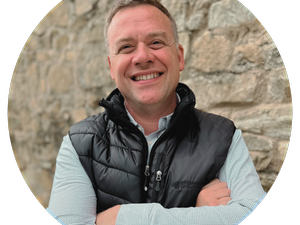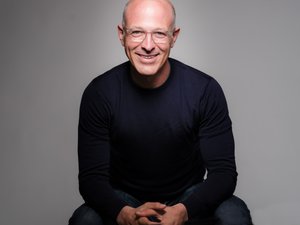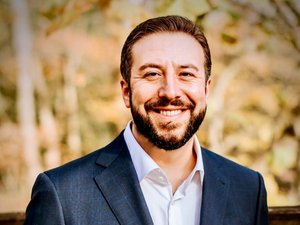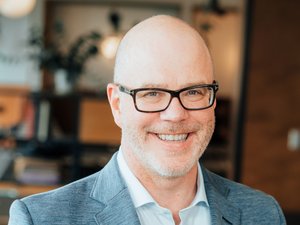
“The worst pitch I ever heard was from this entrepreneur that decided to join my parents and me for brunch one Sunday without an invitation. He sat down with his laptop at our table at the Carlyle in Arlington and jumped right into his pitch deck. I interrupted him on slide two,” CIT Gap Funds Investment Director Jen O’Daniel laughed as she described the encounter to me over the phone.
O’Daniel is the co-founder of the Virginia Tech Investor Network (VTIN), a member of the NextGen Angels’ D.C. chapter and leads CIT Gap Funds’ network in northern and southwest Virginia. The CIT Gap Funds is the state-supported venture capital arm of the Center for Innovative Technology (CIT), which promotes the creation and growth of high potential, early stage tech companies in the state of Virginia.
“CIT’s investment into a startup signals to the angel and VC communities that they should be paying attention to that company,” O’Daniel told DC Inno.
CIT Gap Funds’ Investment Director also founded the VT Investor Network (VTIN) with a couple other Hokies last year so that it could help the next generation of Hokie entrepreneurs. VTIN has invested about $3 million in five Hokie-led companies, three of which are also CIT portfolio companies.
“The worst pitch I ever heard was from this entrepreneur that decided to join my parents and me for brunch one Sunday”
Day-to-day
In any given week, O’Daniel will reach out to roughly 10 new companies that the firm has yet to speak with—to gauge their potential as CIT portfolio companies. She will advise another 15 startups that are either currently applicants for funding or are in the process of raising their first round of capital.
“I invest in seed and early stage tech companies. I get to see the beta version of the next Twitter, Facebook, Snapchat and I get to look at cool stuff coming out of university labs,” she explained.
Her daily schedule revolves around interviewing entrepreneurs, performing due diligence, mentoring young tech companies, consulting with a network of venture capitalists and communicating with established angel investors.
“I get to see the beta version of the next Twitter, Facebook and Snapchat”
O’Daniel explained her schedule to DC Inno, “I typically start my day off at 6:30 a.m. by answering emails from the night before. Then I walk my dog and take a bi-weekly phone call with one of the companies I am mentoring prior to grabbing a coffee with another company that is already in our portfolio or that I am considering for investment.”
On Tuesdays, the prominent 35-year-old female VC can be found with her team at CIT’s Herndon, Va.-based campus, as they listen to back-to-back pitch sessions from prospective portfolio companies who have progressed past the initial application process. In the evenings, she will typically attend a local tech networking event to meet new startups founders, judge a startup pitch competition and/or to sit on an investor panel presentation.
Every other Friday, she hosts an entrepreneur roundtable in Herndon to discuss problems faced by seed stage companies. In addition, O’Daniel usually holds weekly office hours to meet with entrepreneurs in Roanoke, Blacksburg and on university campuses with student entrepreneurs.
“I’m like Mr. Wonderful [Kevin O’Leary] on Shark Tank,” CIT Gap Funds’ Investment Director joked, “I actually dressed as a shark a couple Halloweens ago and handed out horrible term sheets to everyone I ran into.”
“I’m like Mr. Wonderful on Shark Tank”
I asked the Investment Director who she speaks with the most, everyday. O’Daniel took a moment to responded before answering, “my mom, I call her on my way to my first meeting every day. The business answer, besides my colleagues, is a VT Investor Network member–I get at least one call a day with a company referral, a potential new member referral, or a request to look at a deal they are working on.”
O'Daniel originally joined CIT in 2003 and has been recognized multiple times as an exceptional venture capitalist by Entrepreneur Magazine via the magazine’s annual VC100 list. Upon graduation from Virginia Tech, however, O’Daniel assumed she would only be with CIT Gap Funds for roughly a year before jumping ship for a portfolio company to run her own startup—believing that the life of a young tech entrepreneur suited her best.
Fast forward 12 years, and can find her juggling the daily VC life somewhere between Blacksburg and Arlington, Va., with her trusty smartphone and laptop in tow.
Turbulence
Specializing in a broad range of tech startup investor relations in southwest and northern Virginia, O’Daniel has several other CIT Gap Funds colleagues that perform similar job functions in other territories and with different industry focuses. Alex Euler specializes in life science investments plus the Charlottesville area, Sean Mallon focuses on Northern Virginia and Hampton Roads, and Dan Henderson focuses primarily on Richmond.
The leader of the CIT GAP Funds team is Managing Director, co-founder and CIT Gap Funds Vice President Tom Weithman, who is also the chief investment officer for rising cybersecurity accelerator Mach37.
“We each bring a different perspective to the table and screen prospective portfolio companies together every Tuesday. We also invite existing portfolio companies to come in and pitch us when they are raising their next round so we can all brainstorm potential VCs for them to meet,” O’Daniel explained.
At CIT Gap Funds’ HQ, they have a tradition where the firm will invite new portfolio companies to come ring a large bell after closing their first investment round. While the unique, state-supported VC firm will review approximately 600 new companies each year for seed/early stage investment, they only pull the trigger on about 20 of them. CIT Gap Fund typically writes $200,000 to $300,000 checks per company it selects.
"We each bring a different perspective to the table"
On average, O’Daniel is responsible for closing 20 percent of CIT Gap Funds’ investments in any given year. In other words, she typically catalyzes investment in one new Virginia startup every fiscal quarter,
At the moment, she currently sits on the board of directors for The Richmond Venture Forum and Roanoke/Blacksburg Technology Council. O’Daniel is also a board observer to nine local tech companies, including rising cybersecurity star Threat Quotient and entrepreneurial event planners Fosterly.
She told DC Inno, “I hang my hat on the performance of the companies I identify for CIT to invest in–annual revenue, new customers closed, next round of capital, getting acquired. It’s a great day when I can provide a valuable introduction to a potential customer, funder or team members to a company I’m working with.”
Becoming a successful VC
Lost somewhere between the Shark Tank episodes and crude drawings of contemporary venture capitalists in a stark post dot-com era, is the general acknowledgement that these VCs have immensely challenging and time consuming professional lives.
"figure out what your life goals are, what you are good at, bad at, and what you are passionate about ... surround yourself with people that have similar life goals"
It is the type of career, similar to that of a dedicated business journalist, that seldom differentiates between personal and professional time regardless of the situation.
To be effective, O’Daneil said that being a talented networker is simply the first requirement. A great VC, she explained, has an important “rolodex full of developers, sales people, investors, and potential enterprise customers they can share with you [startup founders]. They also have the ability to empathize with their portfolio CEOs and the ability to listen to and read people.”
The unfortunate reality of the startup ecosystem is that most companies fail and subsequently become money pits full of lost and disparaged ideas. A VC’s job, to some extent, is to navigate these dangerous waters and stay afloat amid the madness—all while valuations continue to inflate and startups currently command more capital at earlier stages. O’Daniel is keenly aware of the challenges that inherently face today’s VCs, and admitted that it’s far from an easy gig.
One of the most challenging aspects of O’Daniel’s job is that she must turn down far more entrepreneurs than she would like; “the thing I like least about my job is passing on an investment opportunity in a company or founder that I highly respect.”
I conclude my interview by asking O’Daniel if there has been one prevailing lesson she has learned from working as a VC, from interacting with so many hopeful startups, and she immediately offered a concrete answer directed at founders: “figure out what your life goals are, what you are good at, bad at, and what you are passionate about and then surround yourself with people that have similar life goals and are great at the things you are terrible at. The best CEOs surround themselves with people that are smarter than they are.”




